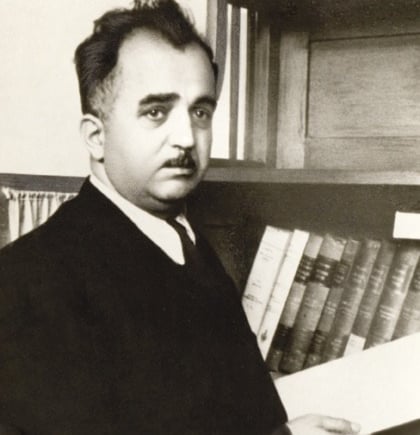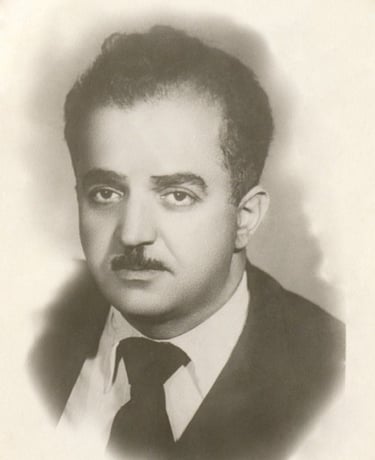About academician Yusif Mammadaliyev (1905-1961)
Academician Yusif Mammadaliyev was Azerbaijan’s greatest scientists of the 20th century — a distinguished chemist, innovator in science and education, and prominent public figure whose work left a profound mark on global science and the national historical-cultural heritage.
Founder of Scientific Fields
He is recognized as the founder of petrochemistry, petroleum refining, polymer chemistry, and green chemistry in Azerbaijan. An innovator in the fields of hydrocarbon chemistry of oil and gas, catalysis, halogenation and alkylation processes, monomer and polymer synthesis, as well as catalytic cracking and pyrolysis. His studies on the molecular structure and therapeutic properties of Naftalan oil opened new directions in medicinal chemistry. His discoveries in the development of high-octane aviation fuels, rocket propellants and lubricants, as well as other strategic materials, played a decisive role during World War II.
The high-quality fuels developed under his leadership were later applied in global space programs, contributing to the launch of the first artificial Earth satellite and the first human spaceflight, thus marking the beginning of the space era for humanity.
Creator of Scientific and Educational Infrastructure
Twice elected President of the Azerbaijan Academy of Sciences, he played a decisive role in shaping the country’s scientific system. Under his leadership, numerous research centers and academic departments were established, laying the foundation for future generations of scientists and engineers. Equally devoted to education, he trained a new cadre of researchers and founded scientific schools that continue their work to this day.




Academician Yusif Mammadaliyev transformed Azerbaijan into one of the centers of chemical science and industrial innovation. His achievements continue to inspire scientists worldwide and form the intellectual foundation of the International Conference “Yusif Mammadaliyev: Science. Heritage. Innovation.”

